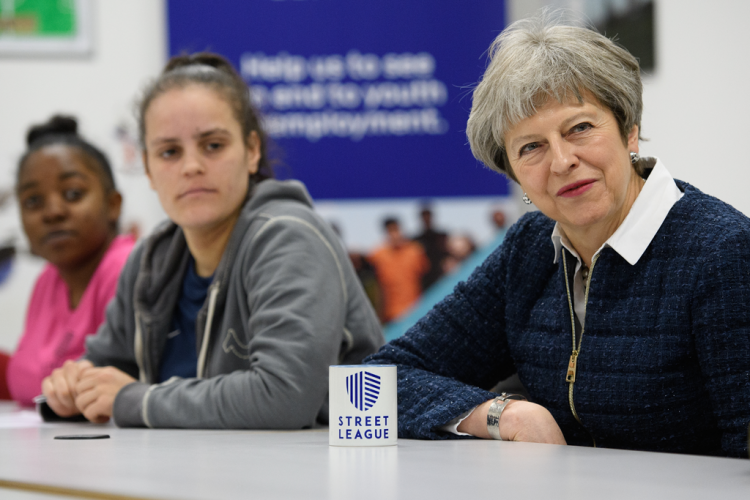If Theresa May is serious about tackling racial inequality - it needs to be more than a £90m promise

The report, which highlights the underemployment and under-promotion of Black and Ethnic Minority (BME) workers in the UK labour market was followed by a fanfare launch of the government’s Race Disparity Audit in October 2017.
In launching the review Prime Minister, Theresa May said “I think what this audit shows is that there isn’t anywhere to hide. The issues are now out in the open and we all have a responsibility to work together to tackle them”.
Unfortunately, Ruby McGregor-Smith’s entreaty on the need to take meaningful action does not appear to have reached the doors of Number 10.
This week's announcement by the Prime Minister of a £90 million innovative programme to address ethnic disparities in youth unemployment and to help disadvantaged young people get into work sounds good but when examined more closely is smoke and mirrors.
I’m not suggesting that anybody should turn their nose up at £90 million, but the level of commitment of the government to tackling race disparities seems thin when you realise that the £90 million, is in fact money. from defunct bank accounts and the big lottery – not a penny of government money.
So, despite the statement that we all must take responsibility, it appears that the government does not think that all applies to them.
The proposed solution to tackle the problem of BME youth unemployment is to offer young people the chance to work directly with educators and youth and community organisations – who will consider how their skills can benefit their local communities and businesses.
This is yet another programme that is based on a deficit model. A model that assumes that it is the fault of BME young people that they are not doing well in the world of work and somehow their deficiencies need to be addressed.
The reality of racism in the workplace is completely ignored even though this was highlighted by the McGregor- Smith report and the Race Disparity Audit.
The TUC along with other organisation have published evidence for years that institutional and structural racial discrimination in the labour market has caused bad outcomes for BME workers.
Over the last eighteen months, the TUC has published data showing that at every level of qualification people from BME communities are at least twice as likely to be unemployed than their white competitor.
Our ‘Let’s talk about racism’ report - was based on a survey of more than 5000 workers - showed that BME workers experience significant discrimination in the workplace, including excessive surveillance and scrutiny by colleagues, supervisors and managers. Being denied promotion, development or acting up opportunities and training and being unfairly disciplined because of their race.
Our report, Is Racism Real revealed that the rise in insecure work has had an adverse effect on the inequalities that BME workers face at work. BME workers are more likely to be in a zero-hours contract and BME young workers are more likely to be underemployed and have their hours changed at short notice.
The reality of working in today’s Britain was related by a young BME female retail worker who when recounting her experiences of work said
“I was constantly bullied and given lesser number of hours than all my other colleagues as well as being given the worse jobs, e.g. all the cleaning tasks. I could tell it was race related. I was unfairly disciplined after asking for help to find an item. I didn’t know asking for help was against the rules. I was also subjected to surveillance like I was going to steal or something”.
If Theresa May is serious about tackling racial inequality in the workplace making sure that measures are put in place to stop these kinds of experiences must be taken.
The TUC has consistently called on this and previous governments to develop a meaningful strategy to tackle the structural racism and job segregation in the labour market. We believe that this such a strategy should include positive action measures that are underpinned by legislation and backed up by properly resourced enforcement. As conditions get worse for BME workers in the labour market the words of Ruby McGregor-Smith are more relevant than ever. The time for talking is over, now is the time to act.
Stay Updated
Want to hear about our latest news and blogs?
Sign up now to get it straight to your inbox
